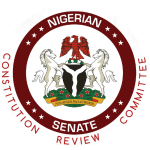Section 213. National Population census
(1) Any report of the National Population Commission containing the population census after every census shall be delivered to the President by the Chairman of the commission .
(2) The President shall within a period of thirty days after receipts of the report lay copies of the report before the Council of State, which shall consider the report and advise the President whether to accept it or reject it.
(3) Where the Council of State advises the President to accept the report, the President shall accept the same and shall then lay the report on the table of each House of the National Assembly.
(4) Where the President accept such report and has laid it on the table of each House of the National Assembly he shall publish it in the official Gazette of the Government of the Federation for public information.
(5) Where the Council of State advises the president to reject upon the ground-
(a) that the population census contained in the report is inaccurate; or
(b) that the report is perverse, the President shall reject the report accordingly and no reliance shall be placed upon any such report by any authority or person or for any purpose what so ever.
Section 214. Establishment of Nigeria Police Force.
(1) There shall be a police force for Nigeria, which shall be known as the Nigeria Police Force, and subject to the provisions of this section no other police force shall be established for the Federation or any part thereof.
(2) Subject to the provisions of this Constitution –
(a) the Nigeria Police Force shall be organised and administered in accordance with such provisions as may be prescribed by an act of the National Assembly;
(b) the members of the Nigeria Police shall have such powers and duties as maybe conferred upon them by law;
(c) the National Assembly may make provisions for branches of the Nigeria Police Force forming part of the armed forces of the Federation or for the protection of harbours, waterways, railways and air fields.
Section 215. Appointment of Inspector-General and control of Nigeria Police Force.
(1) There shall be –
(a) an Inspector-General of Police who, subject to section 216(2) of this Constitution shall be appointed by the President on the advice of the Nigeria Police Council from among serving members of the Nigeria Police Force;
(b) a Commissioner of Police for each state of the Federation who shall be appointed by the Police Service Commission.
(2) The Nigeria Police Force shall be under the command of the Inspector-General of Police and contingents of the Nigeria Police Force stationed in a state shall, subject to the authority of the Inspector-General of Police, be under the command of the Commissioner of Police of that state.
(3) The President or such other Minister of the Government of the Federation as he may authorise in that behalf may give to the Inspector-General of Police such lawful directions with respect to the maintenance and securing of public safety and public order as he may consider necessary, and the Inspector-General of Police shall comply with those direction or cause them to be compiled with.
(4) Subject to the provisions of this section, the Governor of a state or such Commissioner of the Government state as he may authorise in that behalf, may give to the Commissioner of Police of that state such lawful directions with respect to the maintenance and securing of public safety and public order within the state as he may consider necessary, and the Commissioner of Police shall comply with those directions or cause them to be complied with:
Provided that before carrying out any such directions under the foregoing provisions of this subsection the Commissioner of Police may request that the matter be referred to the President or such minister of the Government of the Federation as may be authorised in that behalf by the President for his directions.
(5) The question whether any, and if so what, directions have been given under this section shall not be inquired into in any court.
Section 216. Delegation of powers to the Inspector-General of Police
(1) Subject to the provisions of this constitution, the Nigeria Police Council may, with the approval of the President and subject to such conditions as it may think fit, delegate any of the powers conferred upon it by this Constitution to any of its members or to the Inspector-General of Police or any other member of the Nigeria Police Force.
(2) Before making any appointment to the office of the Inspector-General of Police or removing him from office the President shall consult the Nigeria Police Council.
Section 217. Establishment and composition of the armed force of the Federation
(1) There shall be an armed forces for the Federation which shall consist of an army, a navy, an Air Force and such other branches of the armed forces of the Federation as may be established by an Act of the National Assembly.
(2) The Federation shall, subject to an Act of the National Assembly made in that behalf, equip and maintain the armed forces as may be considered adequate and effective for the purpose of –
(a) defending Nigeria from external aggression;
(b) maintaining its territorial integrity and securing its borders from violation on land, sea, or air;
(c) suppressing insurrection and acting in aid of civil authorities to restore order when called upon to do so by the President, but subject to such conditions as may be prescribed by an Act of the National Assembly; and
(d) performance such other functions as may be prescribed by an Act of the National Assembly.
(3) The composition of the officer corps an other ranks of the armed forces of the Federation shall reflect the federal character of Nigeria.
Section 218. Command and operational use
(1) The powers of the President as the Commissioner-in-Chief of the Armed Forces of the Federation shall include power to determine the operational use of the armed forces of the Federation.
(2) The powers conferred on the President by subsection (1) of this section shall include power to appoint the Chief of Defence staff, the Chief of Army Staff, the Chief of Naval Staff, the Chief of Air Staff and heads of any other branches of the armed forces of the Federation as may be established by an Act of the National Assembly.
(3) The President may, by directions in writing and subject to such conditions as he think fit, delegate to any member of the armed forces of the Federation his powers relating to the operational use of the Armed Forces of the Federation.
(4) The National Assembly shall have power to make laws for the regulation of –
(a) the powers exercisable by the President as Commander-in-Chief of the Armed Forces of the Federation; and
(b) the appointment, promotion and disciplinary control of members of the armed forces of the Federation.
Section 219. Establishment of body to ensure federal character of armed forces
The National Assembly shall –
(a) in giving effect to the functions specified in section 217 of thisConstitution; and
(b) with respect to the powers exercisable by the President under section 218of this Constitution, by an Act, established a body which shall comprise such members as theNational Assembly may determine, and which shall have power to ensure that the composition of the armed forces of the Federation shall reflect the federal character of Nigeria in the manner prescribed in the section 217 of this Constitution.
Section 220. Compulsory military service.
(1) The Federation shall establish and maintain adequate facilities for carrying into effect any Act of the National Assembly providing for compulsory military training or military service for citizens of Nigeria.
(2) Until an Act of the National Assembly is made in that behalf the President may maintain adequate facilities in any secondary or post-secondary educational institution in Nigeria for giving military training in any such institution which desires to have the training.
Section 221. Prohibition of political activities by certain associations.
No association, other than a political party, shall canvass for votes for any candidate at any election or contribute to the funds of any political party or to the election expenses of any candidate at an election.
Section 222. Restrictions on formation of political parties
No association by whatever name called shall function as a party, unless –
(a) the names and addresses of its national officers are registered with the Independent National Electoral Commission;
(b) the membership of the association is open to every citizen of Nigeria irrespective of his place of origin, circumstance of birth, sex, religion or ethnic grouping;
(c) a copy of its constitution is registered in the principal office of the Independent National Electoral Commission in such form as may be prescribed by the Independent National Electoral Commission;
(d) any alteration in its registered constitution is also registered in the principal office of the Independent National Electoral Commission within thirty days of the making of such alteration
(e) the name of the association, its symbol or logo does not contain any ethnic or religious connotation or give the appearance that the activities of the association are confined to a part only of the geographical area of Nigeria; and
(f) the headquarters of the association is situated in the Federal Capital Territory, Abuja.

